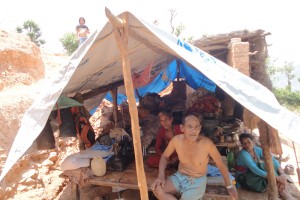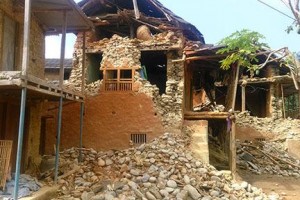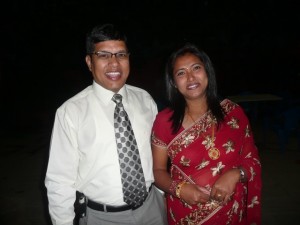Suresh Shreshta sent the following update yesterday about the distribution of relief material, along with several photos to illustrate the way the relief materials are being distributed.
“This is just quick information that yesterday on June 03, 2015, TSS has distributed the following relief materials per family to 164 Dalit families, so-called untouchable lower caste people of Ramechhap, under the relief fund of WN Canada. This is now on-ongoing mainly focusing to Dalits. I have attached some photographs herewith. We would like to thank WN Canada and all the supporters for making this possible for the earthquake victims. TSS has transported all the relief materials to the nearest road-head of the community. Thank you.”
These materials include: a 30 kg. rice packet, 2 kg. of lentil. 1 liter of cooking oil and 1 packet of salt.
 Suresh has also explained that hopefully some of the donation monies will be used to repair damage to the water systems that occurred as a result of the earthquake:
Suresh has also explained that hopefully some of the donation monies will be used to repair damage to the water systems that occurred as a result of the earthquake:
“…. we are also getting information from some communities, regarding the damages of water structures, particularly intake which was built close to water source. Once our technicians are free, they will make field visit and collect the data of damages.”








 ndraising work. The willingness to devote time to activities that will support the people of Ramechhap is greatly appreciated!
ndraising work. The willingness to devote time to activities that will support the people of Ramechhap is greatly appreciated!